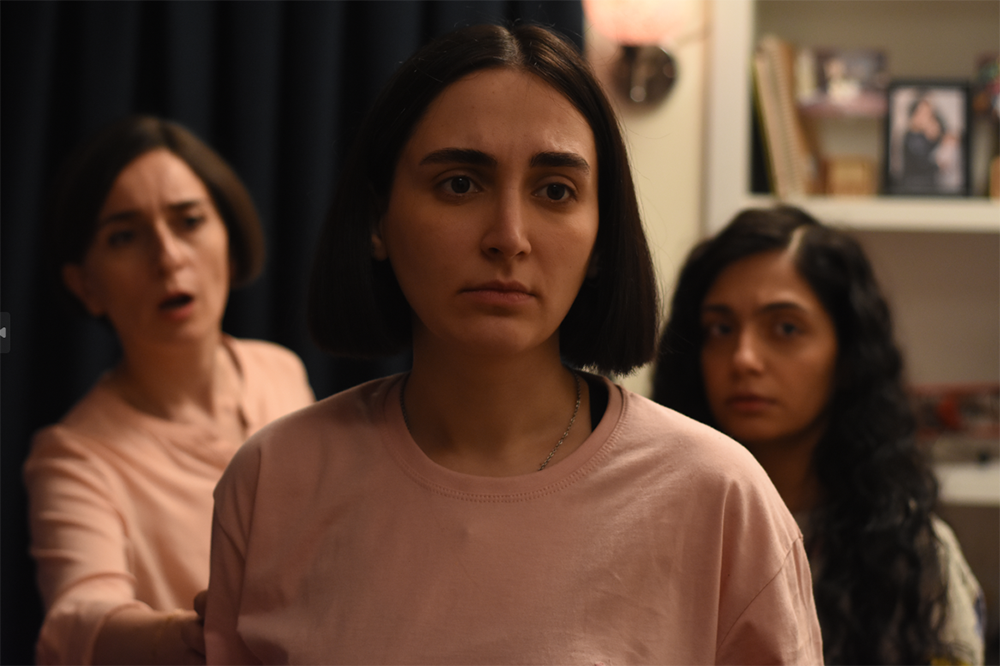Can a politically-charged thriller spark Oscar reform?
A provocative new entry for the Oscars
Iranian director Mohammad Rasoulof’s thrilling drama, The Seed of the Sacred Fig, has created quite a stir. Originally shot in secret in Iran, this film was chosen to represent Germany in the upcoming international Oscar race. But more than just a contender, it’s become a catalyst for significant discussions about how the Academy selects its international nominees.
Dissident voices and contested selections
The film’s entry has ignited a rallying cry from dissident Iranian filmmakers, questioning if countries with authoritarian regimes, such as Iran and China, should have the power to decide their Oscar nominees. They argue that such systems inherently promote censorship and propaganda, sidelining authentic creative voices.
The essence of the film
Set against the backdrop of escalating anti-government protests, The Seed of the Sacred Fig follows an investigating judge in Tehran’s Revolutionary Court as he navigates paranoia and family turmoil. Having earned multiple awards at the Cannes Film Festival, it’s slated to open in the U.S. on Nov. 27 through Neon. Rasoulof, now residing in Germany, plans appearances in New York and Los Angeles for its release.
Echoes of hope and defiance
Rasoulof’s escape from Iran, avoiding imprisonment for shooting the film covertly, underscores the stakes. Germany’s selection of his work signals, in his words, “great hope” for filmmakers in repressive societies. Germany’s decision illuminates a path for other nations to support filmmakers working under censorship.
The call for change in Oscar nominations
Kaveh Farnam, leading dissident voices through the Iranian Independent Filmmakers Association (IIFMA), urges the Academy to reconsider its ties with Iran’s Farabi Cinema Foundation. Farnam describes Farabi as intertwined with the intelligence agency and heavily involved in censoring artistic expression. He argues that Farabi’s choices do not fairly represent Iranian filmmaking talent.
The Woman Life Freedom movement’s impact
In reaction to the 2022 protests sparked by Mahsa Amini’s death in police custody, IIFMA was established. This movement brought significant attention to issues of freedom and oppression in Iran.
Farabi’s Oscar submission this year, In the Arms of the Tree, directed by Babak Khajeh, was criticized by Farnam as unlikely to succeed internationally and chosen for its alignment with regime propaganda. Concurrently, filmmakers like Maryam Moghaddam and Behtash Sanaeeha face political persecution, barred from promoting their widely acclaimed film My Favourite Cake due to its content defying Iran’s strict cultural norms.
The broader implications of Academy rules and choices
The Academy’s rulebook stipulates that selection committees must have at least 50% artists or craftspeople from the motion pictures field. Despite this, the integrity of these committees in authoritarian regimes like Iran remains in question. Farabi’s continued role, despite bans from leading film festivals, contrasts sharply with its standing with the Academy.
A global outlook: Other nations under scrutiny
Rasoulof highlighted that other nations also submit films chosen under authoritarian regimes. China, for instance, tends to favor patriotic narratives over critically acclaimed films for Oscar consideration. Recent choices like Wolf Warrior 2 and The Wandering Earth illustrate this trend.
China’s pick this year, The Sinking of the Lisbon Maru, is a documentary about WWII-era events. This contrasts sharply with the more artistically focused selections from regions like Taiwan, which hosts the Golden Horse Film Awards, open to Chinese-language films and often boycotted by mainland authorities.
Russia, too, has been notably absent from the Oscars due to political tensions with the U.S. over its conflict with Ukraine.
Proposals for innovative categories
Exiled Iranian filmmaker Bahman Ghobadi’s proposal to create a new Oscar category for exiled filmmakers mirrors the International Olympic Committee’s formation of a Refugee Olympic Team. This initiative aims to recognize films emerging from oppressive environments and give them a fair chance on the global stage.
Embracing diverse voices in cinema
Germany’s selection of The Seed of the Sacred Fig, facilitated by the inclusive and varied selection committee of German Films, signals a broader acceptance and understanding of diverse cultures and narratives.
As filmmakers and advocates push for changes in the nomination process, the hope is for the Academy to broaden its perspective, thus amplifying voices that speak truth to power and ensuring that integrity and artistic freedom take precedence in the global cinematic landscape.
Keep the conversation going by sharing this article on social media or staying tuned for more insightful updates on the world of cinema.

 Italian
Italian







